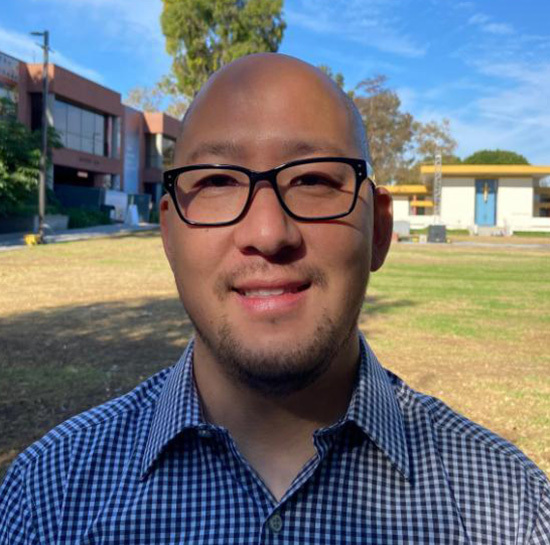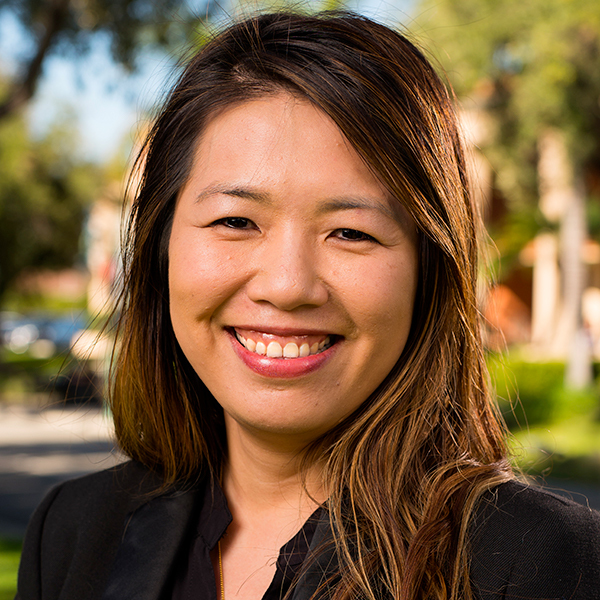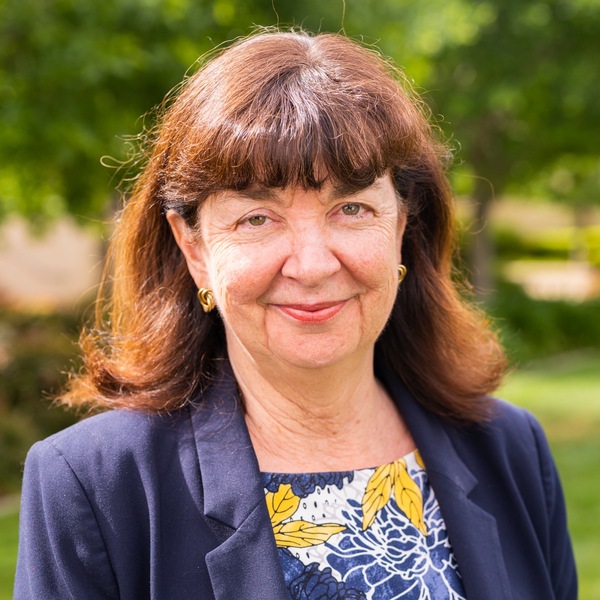Special Education (Mild to Moderate Support Needs) Credential
Special Education (Mild to Moderate Support Needs) Credential


Program at a Glance
Format
Fully Online
Total Credits
42
Cost per Credit
$761
Standard Completion Time
2 years
Accreditation
WSCUC / CTC
Overview
Meet the high demand for special education teachers in California, as well as your calling to serve students with mild to moderate learning needs, through Biola’s Special Education (Mild to Moderate Support Needs) Credential program. Hands-on fieldwork, combined with dynamic online instruction, will prepare you to earn the California Preliminary Education Specialist Instruction (Mild to Moderate Support Needs) Credential. Earning this credential authorizes you to:
- Provide instruction and special education support to individuals who have specific learning disabilities, mild to moderate intellectual disabilities, other health impairments and serious emotional disturbance in grades K-12 and in classes organized primarily for adults through age 22.
- Provide autism instructional services to students within your credential subject area.
- Provide instruction for English language development within your credential subject area.
The main elements of the program are as follows:
- Prerequisite requirement
- Special education coursework
- Fieldwork
- Traditional student teaching or teaching under an intern credential
Explore different ways you can expand your education by viewing our Learning Opportunities page.
Program Requirements
Students must meet and maintain the program requirements to successfully complete the Special Education Credential program.
Professional Licensure
Please visit the Professional Licensure page to see the states for which Biola University meets the educational requirements for the professional licensure program you are interested in.
Yes! Tell Me More!
Credential Pathways & Components
Student Program Pathways
Undergraduate Students
You can get a head start by taking special education courses in your concentration that will waive special education credential courses at the graduate level. The Special Education concentration can be taken as a part of the B.A. in Liberal Studies, Multidisciplinary, the B.A. in Liberal Studies, Elementary Education, or through the undergraduate Certificate in Special Education.
- The concentration or certificate requires four courses.
- The remaining four courses are completed at the graduate level, along with student teaching or teaching under an intern credential. See Special Education (Mild to Moderate Support Needs) Credential program requirements for additional requirements.
Graduate Students
Biola University’s Special Education (Mild to Moderate Support Needs) Credential program is fully online and can be completed in three to four semesters at the graduate level. You may begin the program in either the fall, spring or summer semester. The Special Education (Mild to Moderate Support Needs) Credential program is a non-degree program unless pursued simultaneously with the M.A. in Teaching, M.A. in Education, and M.S. in Special Education programs.
Special Education Credential Prerequisite Requirement
Graduate students must meet the prerequisite requirement by one of the three following options:
- Hold a California Multiple or Single Subject Teaching Credential
- Two online graduate courses that can be taken concurrently with Special Education Credential courses:
- SEED 518 (3 credits)
- SEED 530 (3 credits); 30 hours of fieldwork; accommodation will be provided for full time teachers and special education instructional aides)
- The following in-person graduate or undergraduate coursework:
- SEED 519 (2 credits; 15 hours of fieldwork) or LEDU 301
- SEED 526 (3 credits) or LEDU 330
- SEED 541 (3 credits; 20 hours of fieldwork) or LEDU 341
- SEED 520 or SEED 525 (3 credits; 35 hours of fieldwork or 10 hours for full-time teachers), or LEDU 420/425
Special Education Coursework
Undergraduate Students
- LEDU 301: Introduction to Teaching (3); prerequisite
- LEDU 361: Issues in Special Education (3)
- LEDU 362: Assessment and Evaluation of Exceptional Learners (3)
- LEDU 363: Teaching Students with Mild to Moderate Support Needs in Inclusive Settings (3)
- LEDU 364: Behavior and Classroom Management for Students with Special Needs (3)
- LEDU 369: Introduction to Autism Spectrum Disorders (3)
See the Biola catalog for complete details.
Graduate Students
- SEED 561: Issues in Special Education (3)
- SEED 562: Assessment and Evaluation of Exceptional Learners (3)
- SEED 563: Teaching Students with Mild to Moderate Support Needs in Inclusive Settings (3)
- SEED 564: Behavior and Classroom Management for Students with Special Needs (3)
- SEED 583: Curriculum Design for Students with Mild to Moderate Support Needs (3)
- SEED 532: Diagnosis and Remediation in Reading (3)
- SEED 582: Consultation, Collaboration, and Communication for the Education Specialist (3)
- SEED 580: Introduction to Autism Spectrum Disorders (3)
See the Biola catalog for complete details.
Field Experience
Listed below are the courses that require fieldwork hours. Biola will arrange placements for you.
Undergraduate Students
- LEDU 362: Assessment and Evaluation of Exceptional Learners (3 credits) — 15 fieldwork hours
- LEDU 363: Teaching Students with Mild to Moderate Support Needs in Inclusive Settings (3 credits) — 15 fieldwork hours
- LEDU 364: Behavior and Classroom Management for Students with Special Needs (3 credits) — 15 fieldwork hour
- LEDU 369: Introduction to Autism Spectrum Disorders (3 credits) — 15 fieldwork hours
See the Biola catalog for complete details.
Graduate Students
- SEED 562: Assessment and Evaluation of Exceptional Learners (3 credits) — 15 fieldwork hours
- SEED 563: Teaching Students with Mild to Moderate Support Needs in Inclusive Settings (3 credits) — 15 fieldwork hours
- SEED 564: Behavior and Classroom Management for Students with Special Needs (3 credits) — 15 fieldwork hours
- SEED 580: Introduction to Autism Spectrum Disorders (3 credits) — 15 fieldwork hours
- SEED 532: Diagnosis and Remediation in Reading (3 credits) — 30 fieldwork hours
- SEED 582: Consultation, Collaboration, and Communication for the Education Specialist (3 credits) — 20 fieldwork hours
- SEED 583: Curriculum Design for Students with Mild/Moderate Disabilities (3 credits) — 60 fieldwork hours (reduced to 10 hours for full-time teachers)
See the Biola catalog for complete details. Most graduate students work full time and, through permission from their employers, utilize personal or vacation time to arrange for their fieldwork hours in the schools.
Student Teaching or Teaching Under an Intern Credential
At Biola, there are two ways to earn your special education credential at the graduate level.
Traditional Track
- The traditional track involves successful completion of prerequisites, online coursework, fieldwork and a student teaching assignment during the final semester of the program. All fieldwork and student teaching placements will be in WASC-accredited public schools. You will be assigned a Biola supervisor. See Special Education (Mild to Moderate Support Needs) Credential program requirements for more details.
- Details:
- Student teaching is the final course in Biola's Special Education (Mild to Moderate Support Needs) Credential program. If you complete this requirement through the traditional student teaching route, you will enroll in SEED 584 and SEED 585 during your 16-week placement in a single classroom. You will be assigned a master teacher and a Biola supervisor.
- SEED 584: Student Teaching in Special Education (6)
- SEED 585: Student Teaching in Special Education (6)
- You may student teach in either public or non-public schools (but not private schools) in California. Biola will find the student teaching placement for you.
- Student teaching is the final course in Biola's Special Education (Mild to Moderate Support Needs) Credential program. If you complete this requirement through the traditional student teaching route, you will enroll in SEED 584 and SEED 585 during your 16-week placement in a single classroom. You will be assigned a master teacher and a Biola supervisor.
- The traditional track involves successful completion of prerequisites, online coursework, fieldwork and a student teaching assignment during the final semester of the program. All fieldwork and student teaching placements will be in WASC-accredited public schools. You will be assigned a Biola supervisor. See Special Education (Mild to Moderate Support Needs) Credential program requirements for more details.
Intern Track
- The intern track involves successful completion of prerequisites and additional requirements followed by completion of online coursework while you are employed as a full-time special education teacher under our intern credential. See the Special Education (Mild to Moderate Support Needs) Credential program requirements for more details.
- Details:
- Instead of student teaching your final semester of the Special Education (Mild to Moderate Support Needs) Credential program, you can teach under an intern credential if you are eligible. Each semester you teach under the intern credential, you will enroll in the intern support seminars. By the end of the program, you will need to have taken all four seminar courses (12 total credits). Student teaching (SEED 584/585) will not be required in the intern credential track.
- SEED 611: Intern Support Seminar I (3)
- SEED 612: Intern Support Seminar II (3)
- SEED 613: Intern Support Seminar III (3)
- SEED 614: Intern Support Seminar IV (3)
- You have the option to transition from traditional to the intern track at any time if qualifications are met.
- Instead of student teaching your final semester of the Special Education (Mild to Moderate Support Needs) Credential program, you can teach under an intern credential if you are eligible. Each semester you teach under the intern credential, you will enroll in the intern support seminars. By the end of the program, you will need to have taken all four seminar courses (12 total credits). Student teaching (SEED 584/585) will not be required in the intern credential track.
Admissions & Deadlines
As a Christian institution, Biola seeks to admit applicants whose backgrounds clearly demonstrate scholarly aptitude, a commitment to the historic Christian faith, personal character and integrity, and a positive service-oriented motivation toward their field of study. Biola does not discriminate on the basis of the applicant's race, color, sex, socio-economic status, disability, or national or ethnic origin.
Education and GPA Requirements
- You must have a bachelor’s degree from an accredited institution by the time you plan to start coursework at Biola, with a cumulative grade point average of 2.75 (on a 4.0 scale).
- Note: If you do not meet the degree or GPA requirements above, you may still be considered for admission. Please contact the Office of Graduate Admissions office at graduate.admissions@biola.edu. If you are an international student, contact grad.international@biola.edu.
Program-Specific Requirements
- For requirement details, see "Complete program-specific admissions requirements" in the application steps section below.
English Proficiency Requirements
- If English is not your first language, you are required to display your English proficiency before admittance into a Biola University graduate program. See “English Proficiency” in the application steps section below.
Application Deadlines
- Fall Semester
- Early Action: May 1
- General: July 1
- International Students
- On Campus: June 1
- Online/Hybrid: July 1
- Spring Semester
- Early Action: October 1
- General: November 1
- International Students: October 1
- Summer Semester
- General: April 1
- General: April 1
Visit Biola
Explore our sunny Southern California campus in person or virtually. Learn more about your program of interest and the admissions process by scheduling an appointment with an admissions counselor.
Meet Your Admissions Counselor
If you have more questions about the program, admissions process or Biola in general, schedule a phone call or send an email to your admissions counselor.
Graduate Admissions Counselor

Email: steven.s.shin
Phone: (562) 903-4752 x4688
Book a Phone or Virtual Appointment
International Graduate Admissions Counselor
The Office of International Admissions serves students who are not citizens or permanent residents of the United States.
Email: grad.international@biola.edu
Book a Phone or Virtual Appointment
Application Steps
Complete and submit the online application
Submit a non-refundable $65 application fee
Submit supplemental application materials through your online application portal:
- Submit all official transcripts from previous academic institutions.
- Request official transcripts from all colleges and universities attended.
- If enrolled at the time the application is filed, be sure to request transcripts of work finished to date and final transcripts upon completion of your course of study.
- Transcripts will be considered official only when a) mailed directly from the institution to Biola, b) sent electronically through an approved vendor or c) physically delivered in an untampered envelope sealed by the institution. Final approval for admission is contingent on receiving an official transcript.
- Mail transcripts to:
Biola University Office of Graduate Admissions
13800 Biola Avenue, La Mirada, CA 90639
- Mail transcripts to:
- International Transcripts: All international transcripts should be evaluated by a credential evaluation agency like SpanTran (Biola Discount), World Education Services (WES) or Foundation for International Services (FIS). Be sure to choose "course by course report" and have SpanTran/WES/FIS send them directly to Biola University via online portal or post (13800 Biola Ave, La Mirada, CA 90639) in order to be considered official.
- Note: Additional instructions can be found in the online application.
- Note: The essay prompts can be found in the online application.
- Evidence of English proficiency is required for all students to support student success. Proficiency must be shown through one of the methods described below:
- Minimum test score on a qualifying standardized test
- TOEFL: minimum score of 100 iBT
- IELTS: minimum score of 7.5
- Duolingo: minimum score of 125
- A degree (bachelor’s, master’s or doctoral) issued by an institution where English is the medium of instruction.
- Official written communication from the institution (Registrar, Controller of Examinations Office, or Undergraduate College)
- Official degree statements or transcripts may be accepted given English is stated as the medium of instruction
- Official catalog verification
- Note: For universities from non-Anglophone countries, further language assessment may be required.
- Minimum test score on a qualifying standardized test
Complete program-specific admissions requirements:
- Verify Certificate of Clearance — If an active California credential is not held — Verify possession of Certificate of Clearance from the California Commission on Teacher Credentialing.
- Verify Subject Matter Competency — At admission, applicants will need to verify subject matter competency or demonstrate evidence of continuous progress toward meeting the subject matter competency by one of the following:
- Present a letter verifying completion of a state-approved subject matter waiver program
- Present evidence of an attempt of at least one subtest of CSET
- Present proof of enrollment to take the CSET
- Present proof of enrollment in a CSET preparation course or evidence of purchasing CSET preparation materials
- Meet Basic Skills Requirement (or attempt CBEST) — Attempt the California Basic Educational Skills Test (CBEST) or have satisfied the Basic Skills Requirement (BSR).
- Fieldwork in California — Applicants must have the ability to complete fieldwork in California.
Interview with a faculty member
- After your application and all supplemental application requirements are submitted and approved, you will have a phone/video interview with a faculty member.
- Track your application status at any time. You do not have to complete the application in one sitting. You can complete a portion and finish at a later time. Your information will be saved. When you apply, to guarantee confidentiality, you will be asked to create a user name and a password, and will receive a personalized identification number. Track your application status by logging in to the online application.
- Official documents presented for admission or evaluation become part of the student’s academic file and normally cannot be returned or copied for distribution.
Official Transcripts
Reference Letters
Essays
English Proficiency (required for non-native English speakers)
Special Education (Mild/Moderate) Credential
Things to Note
Faculty

Mickie Wong-Lo
Director of Special Education
- Ph.D., University of North Texas
- M.Ed., University of Houston
- B.S., University of Houston

June Hetzel
Adjunct Professor and Faculty Emerita
- Ph.D., Claremont Graduate University
- M.A., Talbot School of Theology
- M.S., California State University, Fullerton
- B.A., Biola University
Tuition and Financial Aid
Biola is committed to help make your studies affordable — each school offers different scholarship, grant and loan opportunities to help finance your education.
| Cost Per Credit (2026‑27) This rate applies to coursework taken at the graduate level | $761 |
|---|---|
| Total Program Tuition (Estimated) Based on total program credits and 2026‑27 cost per credit | $31,962 |